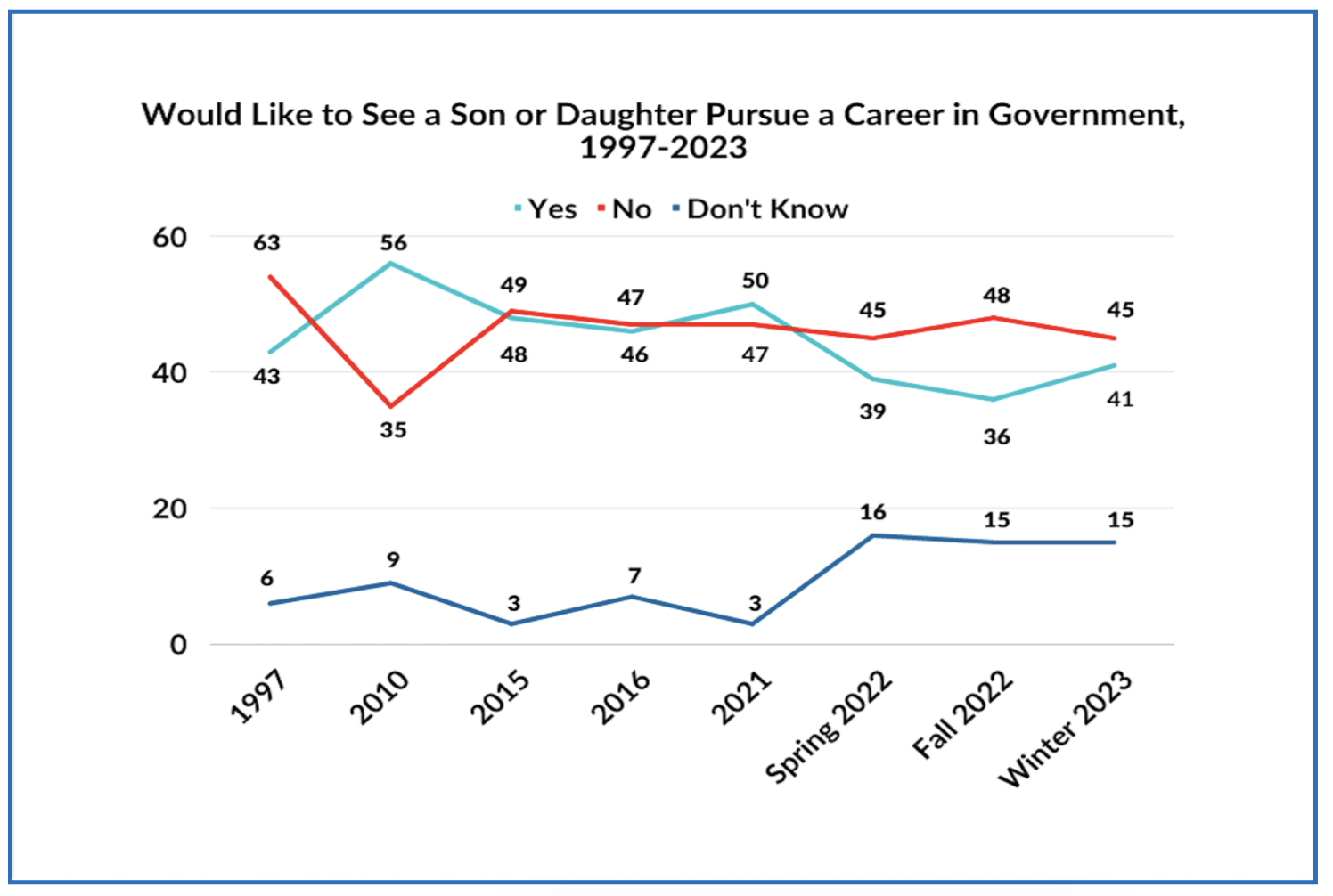
Sean Gladwell/Getty
Biden’s Dilemma, Part 9: Parents Don’t Want Their Children To Pursue Government Careers
The latest in a series of infographics on Americans’ views of government reform heading into the 2024 election.
President Biden heads toward the 2024 presidential campaign with the federal government’s job rating in decline, support for a smaller government increasing, and the demand for major government reform at a 30-year high. This series of charts and graphs explores the current landscape when it comes to Americans’ views of government reform.
The past 20 years of government breakdowns, bureaucratic layering, and anti-government rhetoric have taken a toll on student interest in government careers and parental support. The percentage of respondents who said “yes” when asked whether they would recommend a career in government to a son or daughter has been falling since 1997.
In turn, the percentage who said “no” has held steady in the 40% range. And the percentage of “don’t know” responses to the question more than doubled from 6% in 1997 to 15% in 2023. That pushes the total number of “don’t know” and just plain “no” responses to almost 60%.
The January 6 insurrection may have had an impact on parental support for government careers. And partisanship has played a role, with 56% of Democrats saying “yes” to a career in government for a son or daughter, compared with the 62% of Republicans who said “no.”
To change these numbers and bolster his own reelection prospects, Biden needs to focus on government reform. Having largely avoided blue-ribbon commissions and study groups during his tenure in office, Biden may yet discover the value of road-tested slogans such as Jimmy Carter’s “government as good as its people” and Al Gore’s “government that works better and costs less.” To quote one of his favorite sayings, Biden needs to “finish the job” that Carter and Gore began years ago.

The trend lines and analyses presented in this series come from stand-alone random-sample surveys conducted by Lake Research Partners, Maguire Research Services, the Pew Research Center, SSRS, and the University of Pennsylvania Annenberg Public Policy Center. Occasional data points were also harvested from search engines managed by survey aggregators such as PollingReport.com, the Roper Center’s iPOLL database, and publicly available Pew Research Center surveys dating back to 1997. All survey findings were based on random-sample surveys of at least 1,000 respondents interviewed by cell phone and landline, with estimated error rates of 3% to 4% at a 95% confidence level.







